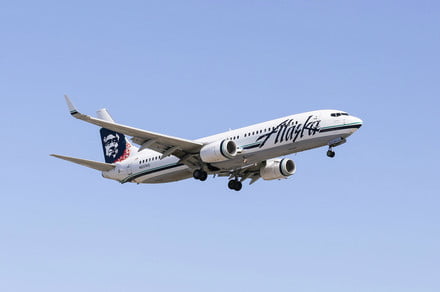Trevor Mogg
Security researchers at the firm Wandera have exposed a vulnerability in the e-ticking system used by several popular global airlines. The vulnerability was discovered in December and involves unsecured check-in emails that can put the personal information of passengers at risk or even allow a hacker to print boarding passes.
Though there is no evidence that currently supports a major data breach, eight airlines including Southwest, Air France, KLM, Vueling, Jetstar, Thomas Cook, Transavia, and Air Europa are impacted by this vulnerability. According to Wandera, these airliners are sending unencrypted check-in links, which otherwise automatically log passengers into a website to check flight status and print boarding passes. That can allow a hacker who is sharing the same Wi-Fi network as a passenger to intercept the link and gain access to the same information.
Several types of personally identifiable information can be accessed through this vulnerability, including passport information, seat assignments, first and last names and baggage selections. However, the type of information that can be stolen depends on each airline e-ticking system. In some cases, hackers can still leverage this information to their advantage to change an itinerary. That includes the ability to add or remove extra bags, change seating arrangements, or alter both the mobile phone number or email associated with a booking.
“Our threat research team observed that travel-related passenger details were being sent without encryption as one of our secured customers accessed the e-ticketing system of one of the airlines mentioned above. It was at that time that Wandera notified the airline and began further research,” Wandera said.
The vulnerability was shared the appropriate government agencies as well as with the airlines. A period of four weeks is given for the vulnerability to be fixed before it was made public. As a solution, Wandera recommends for airlines to adopt strong encryption methods, require user authentication, and use one-time tokens for links in emails.
This would not be the first time that airliners have faced scrutiny relating to its cybersecurity practices. Though more severe, a British Airways data hack in 2018 impacted more than 380,000 passengers after its computer systems were breached. A separate instance with Cathay Pacific also impacted up to 10 million of its customers in 2018.
Editors’ Recommendations
- Marriott suffers a massive breach of its guest records. Here’s how to protect yourself
- Amid security breaches, Nest urges customers to use stronger passwords
- Latest SMS breach could allow hackers access to your online accounts
- Sennheiser’s flawed headphone software is a Trojan horse hackers could exploit
- Encryption-busting law passed in Australia may have global privacy implications

